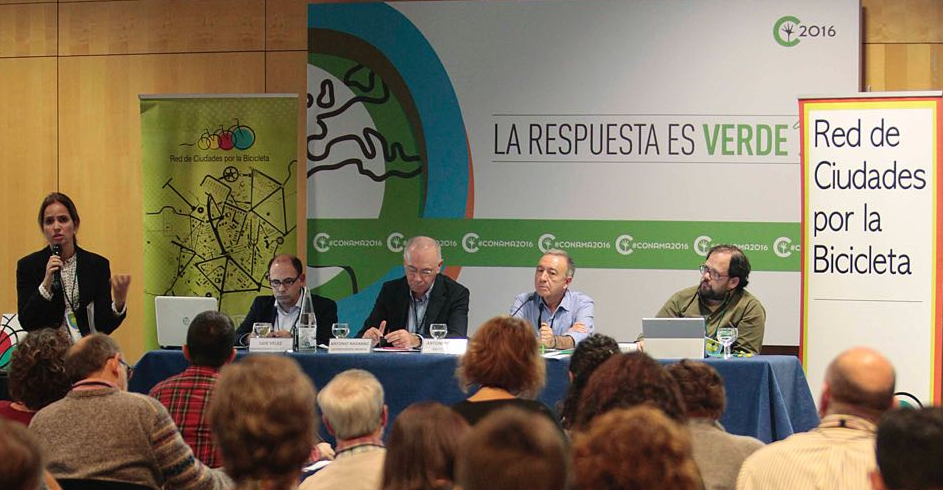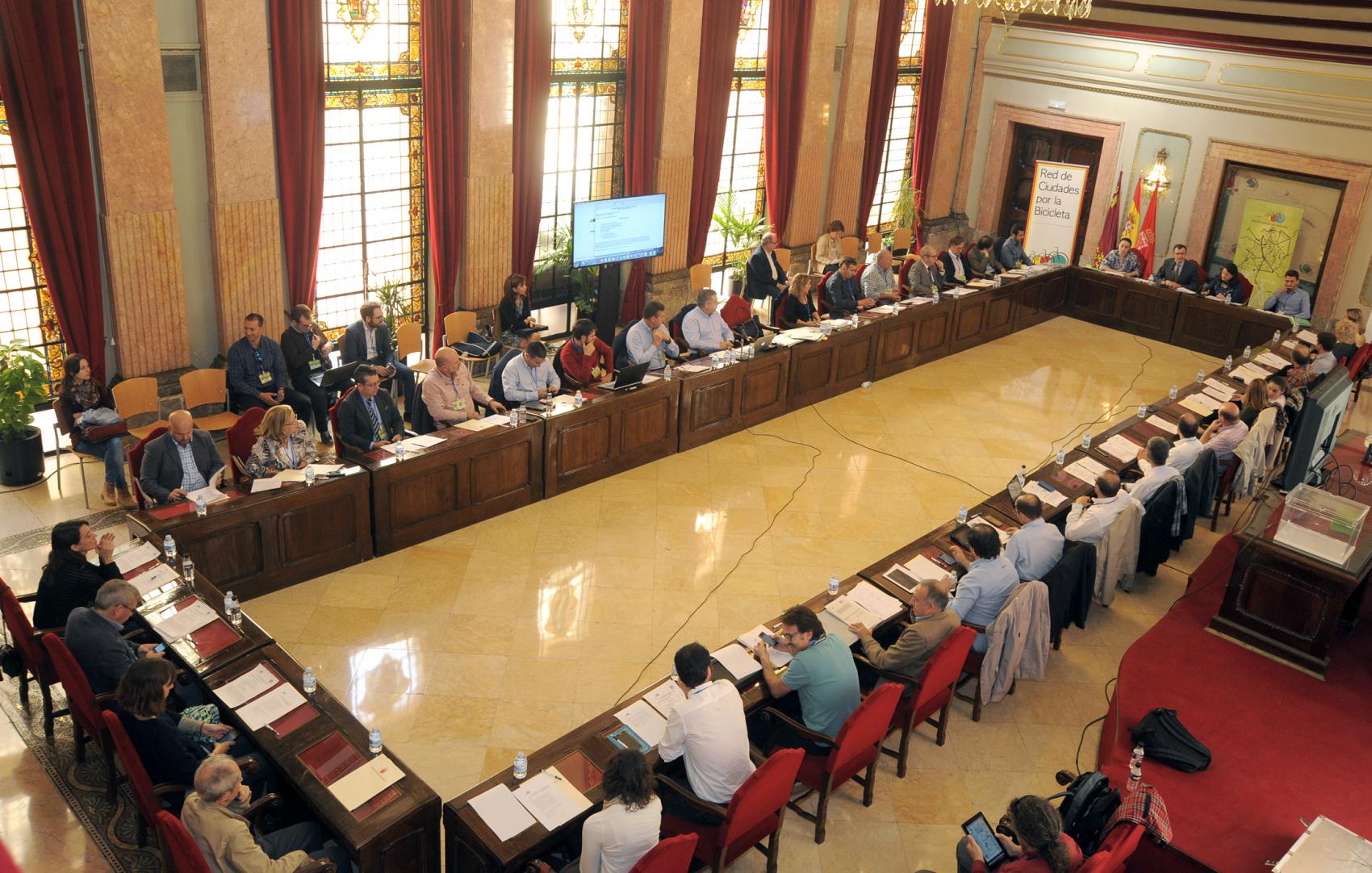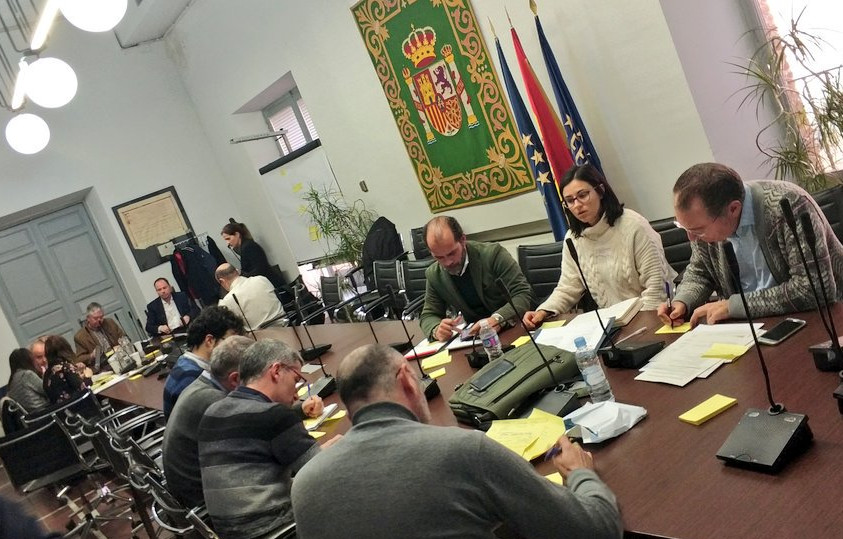
#VisionaryCities Series: Spanish Bicycle Strategic Plan Coming soon
The #VisionaryCities Series is a collection of best practices and success stories from visionary local authority leaders contributing to making Cycling in Europe better, safer and more common. We are going to be inviting some of them to share their thoughts and visions with ECF.com in the coming months.
 Nacho Tomás manages the RCxB (Red de Ciudades por la Bicicleta) network, an association of local entities that aims to facilitate, make safer and develop cycling mobility. The RCxB is the national reference association in cyclist mobility, is an active member of the Cities & Regions for Cyclists global network and represents more than 500 Spanish municipalities.
Nacho Tomás manages the RCxB (Red de Ciudades por la Bicicleta) network, an association of local entities that aims to facilitate, make safer and develop cycling mobility. The RCxB is the national reference association in cyclist mobility, is an active member of the Cities & Regions for Cyclists global network and represents more than 500 Spanish municipalities.
A common vision for a brighter future
One of the core recommendations reported across the whole EU Cycling Strategy, presented last year to the European Commission, is to create and pursue local and national cycling strategies, so that all levels of governance can coordinate in the promotion of sustainable and active mobility. Under the leadership of the National General Directorate for Traffic (DGT) and thanks to the great effort of several partners including the RCxB and ConBici, always in the front-line of cycling mobility, the Spanish Bicycle Strategic Plan (PEEB in Spanish) is beginning to come together.
Such a crucial document, intended to shape cycling policies for a whole European country for years to come, has to be democratically designed and approved. That is why the drafting of the PEEB is being coordinated with a wide set of stakeholders, including governmental bodies at national and local level, users associations, representatives of the civil society, official organisations and experts in various fields. This has resulted in an immense coalition co-creating the future of cycling in Spain.
Initial developments
In the spring of 2018, the members of the Technical Committee were selected, including the RCxB and several national ministries. The work index was elaborated by sub-working groups with the ambition of publishing a finalised PEEB by the beginning of 2019. For this reason, it has been supported by a Technical Office that has established an intense schedule of meetings until the end of 2018 in order to ensure that the ten action areas initially planned and listed below can be dealt with in separate subgroups.
 Action areas subgroups:
Action areas subgroups:
- Regulations on mobility
- Urban designs
- Infrastructures
- Transport
- Bike2Work
- School, family and social environment
- Road safety and administrative issues
- Employment and bicycle touring
- Health and leisure
- Culture changing and campaigns
The RCxB have participated in all ten subgroups in order to give voice to their members because they have a lot to say. In Spain, as in other countries, the roles and responsibilities of different levels of governance depend on the scope of action. Cities have always been ahead regarding the matter of cycling but it is time for the state to move forward too.
Participative planning process
The participative planning process of the PEEB contained two different phases. The first one was a diagnosis workshop, where participants had to deliver an outlook on the current situation regarding various topics. Experts then engaged in discussions on best practices, areas of improvement and central weaknesses. The second phase consisted of a proposals workshop, where participants had to identify future scenarios, benefits, changes to be made and measures to be taken. The following figures (as of September 2018) give an idea about the magnitude of the effort made, the breadth of topics discussed as well as the vocation to involve as many actors as possible:
 21 collaborative workshops
21 collaborative workshops- 101 institutions involved
- 407 people called to the workshops
- 1,843 ideas expressed
- 127 scenarios
- 430 benefits
- 313 changes
- 578 actions to be considered on these days
Despite the occasional division of opinions likely to arise in the presence of so many stakeholders, the bicycle has always been the main focal point thus ensuring that these challenges were successfully overcome.
The final stretch
At present, the Technical Office is working on the coordination of the multiple actors and on a set of broad actions that will make the difference. With the upcoming Plan, the RCxB therefore hopes that the national organisms will finally support what is already being developed in numerous Spanish municipalities and thereby bring RCxB closer to its aim of promoting bicycle use in all areas of Spanish society.
Regions:
News category:
Network/Project Involved:
Contact the author
Recent news!
Upcoming events
Contact Us
Avenue des Arts, 7-8
Postal address: Rue de la Charité, 22
1210 Brussels, Belgium









